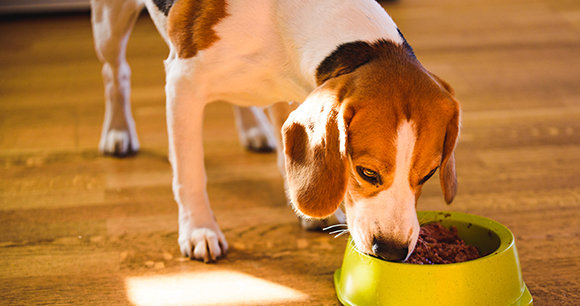
Washington, DC—This year, as Japan struggles to recover from the economic slump caused by COVID-19, its government is spending more than 5 billion yen ($39 million) to support a whaling industry so desperate for customers it is peddling its product as dog treats.
For decades, Japan circumvented the International Whaling Commission (IWC) global ban on commercial whaling by killing whales under the guise of research. In December 2019, Chief Cabinet Secretary Yoshihide Suga (who later became prime minister) announced with great fanfare that Japan would leave the IWC and resume commercial whaling.
However, less than three years later, demand for whale meat is so low in Japan that the country’s only remaining factory ship whaling company, Kyodo Senpaku, is in serious financial trouble, and stockpiles of unwanted whale meat are being repurposed for pet food.
A new independent analysis of the whale meat market in Japan by a Japanese researcher shows that, even with significantly lower catches, the amount of meat stockpiled for lack of buyers has been growing since mid-2020. Despite deeply discounted sales to schools and medical facilities—and promotional gimmicks such as whale blubber ice cream—whale meat inventory remains high.
Japan’s Iruka & Kujira (Dolphin & Whale) Action Network (IKAN) reports that more than 30 Japanese companies are manufacturing or selling processed, frozen, freeze-dried, or raw products made from sei, minke, and fin whales. Research conducted by Animal Liberator, a Japanese NGO, found that more than 50 Japanese whale products are marketed for dogs (including raw meat, processed meat in pouches, dried jerky, sprinkles, biscuits, and freeze-dried cubes). Ten additional products are marketed for cats or both dogs and cats, including an omega-3 supplement made from whale blubber.
“Japan resumed commercial whaling under the pretext of tradition, but feeding whale meat to dogs is far from traditional in Japan,” said Nanami Kurasawa, executive director of IKAN.
Japan’s government ended its research whaling program in the Antarctic Ocean and on the high seas of the North Pacific in 2020, and now sets lower commercial whaling quotas for minke, Bryde’s, and sei whales in its territorial waters and exclusive economic zone. As a result, the country’s supply of whale meat has declined by 40 percent during the last two years.
“There is no justification for the government of Japan continuing to prop up this dying industry” said Sue Fisher, acting marine program co-director for the Animal Welfare Institute. “These magnificent animals keep the ocean healthy and help fight climate change, yet the government of Japan is helping to turn them into pet treats.”
Japanese government officials have told Kyodo Senpaku that it needs to become “financially independent,” warning that the firm’s annual 5 billion yen taxpayer subsidy for whaling will soon be phased out. High operating costs, persistent declines in public demand for whale meat, and the government’s refusal to grant the company’s request for higher quotas (to increase economies of scale), have exacerbated Kyodo Senpaku’s longstanding financial woes. Additionally, the company needs to replace its aging factory ship at a cost of 6 billion yen ($46 million).
Japan is not the only country offloading its whale meat for pet food: Norwegian whalers admitted last year to supplying whale meat for dog food in Norway. In 2013, Japan sold dog treats manufactured from Icelandic fin whale meat. It has been over a decade since Japan itself has hunted fin whales, so the fin whale pet food sold in the country today also likely came from Iceland’s controversial hunt.
Marjorie Fishman, Animal Welfare Institute
[email protected], (202) 446-2128
The Animal Welfare Institute (awionline.org) is a nonprofit charitable organization founded in 1951 and dedicated to reducing animal suffering caused by people. AWI engages policymakers, scientists, industry, and the public to achieve better treatment of animals everywhere—in the laboratory, on the farm, in commerce, at home, and in the wild. Follow us on Facebook, Twitter, and Instagram for updates and other important animal protection news.